10 Ways Teen Wolf Series Is Better Or Worse Than The Film
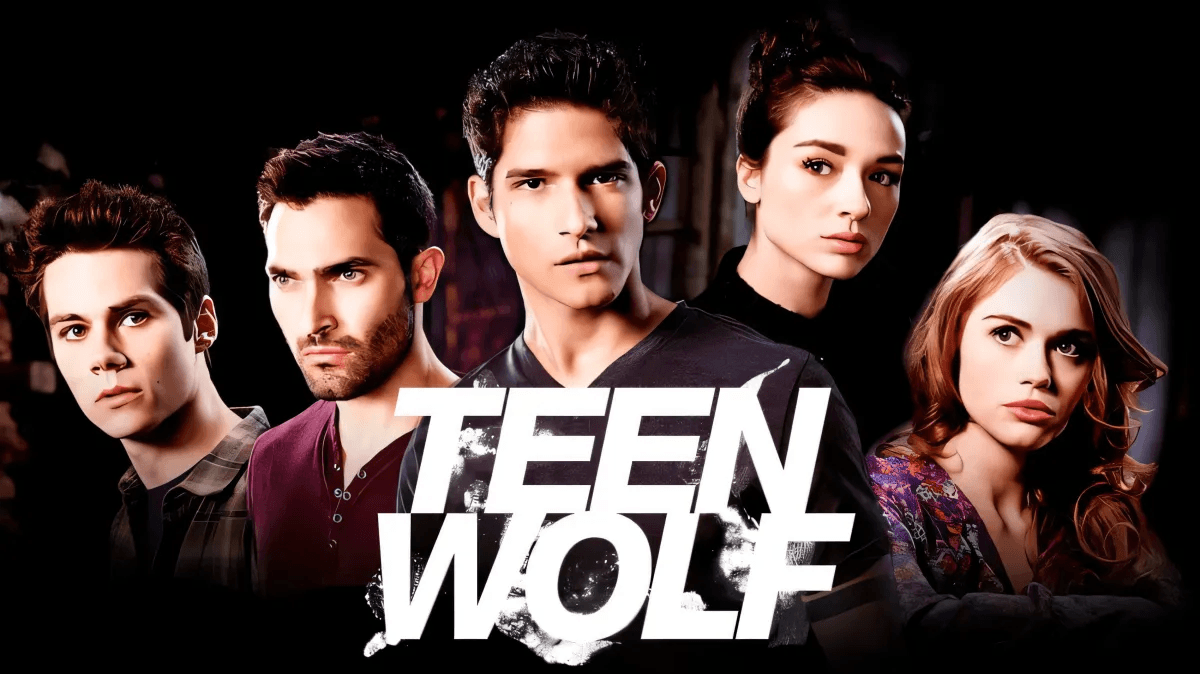
MTV’s Teen Wolf series ran from 2011 to 2017, with six seasons and a whopping one hundred episodes, the series was hailed as one of MTV’s best teen dramas at the time and launched the careers of its main cast, such as Tyler Posey and Dylan O’Brien.
Teen Wolf tells the story of Scott McCall (Tyler Posey), a normal dorky teenager trying to fit in, who gets bitten by a werewolf when he and his friend Stiles (Dylan O’Brien) go out to the woods in the middle of the night in search of a dead body.
The series is a great combination of thriller, drama, supernatural horror, and comedy, getting more into its comfort zone as the seasons' progress. With all that, what modern viewers might not realise is that Teen Wolf is loosely based on the 1985 film of the same name.
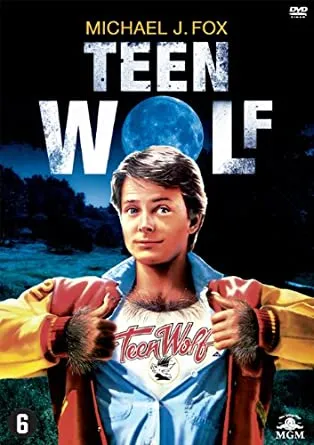
Teen Wolf (1985) is a high school comedy with the added drama of lycanthropy thrown in, starring the great Michael J Fox. Scott Howard, played by Fox, is your usual teenager whose only real goals are to get with the girl he fancies and win his basketball tournament; unfortunately, neither seem likely-that is until Scott starts to feel a little strange. Scott wakes up one day and starts noticing some pretty odd changes: extra hair, pointed ears, fangs, and nails a manicurist would run from, it turns out Scott is a werewolf.
Having inherited the gene from his dad Scott has to add his werewolf transformation to everything else he has to contend with. Although these two stories follow the same basic format of a high school teen turning into a werewolf, the 2011 series and 1985 films are completely different. So it would be pointless to compare them, right? But I’m gonna do it anyway, here are 10 ways the Teen Wolf series is better or worse than the film.
Better: The Werewolf Transformation

Michael J Fox’s werewolf transformation in Teen Wolf (1985) resulted in a classic wolfman look, featuring long hair all over his body and face, claws, fangs, and a more pronounced nose (or snout). Somehow, though, even with the combination of all these characteristics Fox looks closer to an ape or caveman than a member of the Canidae (or canine) family.
In fact, he would fit in with Dr. Zira and Cornelius from 1968’s Planet of the Apes or running alongside Alan after he escapes the game board in Jumanji (1995). The fact that the film features a lot of basketball scenes and acrobatics on top of vans doesn’t help make Fox look any less ape-like.
In the Teen Wolf series, the makeup artists went for a more subtle transformation, sticking with the fangs and claws, but substituting full-body fur for long sideburns and bushy eyebrows, with a pronounced brow and nose.
The eye transformation was also brought to the forefront, acting as a tell-tale sign for viewers, signalling when Scott was changing or losing control. In the film there was very little warning when the transformation occurred, one second Fox was Scott Howard the next wolfman, no in-between.
This change was due to the fact that creator, writer, and producer Jeff Davis was aiming for a slicker, sexier look that would fit with the darker, more serious tone of the story and the larger focus on a horror element.
Worse: Characters Withhold Important Information For No Reason
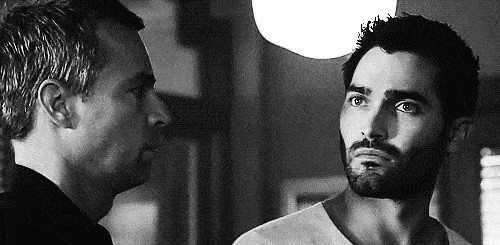
The Teen Wolf series is a thriller among other things and as such there are many suspenseful moments that keep viewers gripping the edge of their seats. However, there are times when characters needlessly withhold information, neglect to reveal it, or only hint at it in round-about ways. Some culprits are Derek (Tyler Hoechlin), his brother Peter (Ian Bohen), and Allison’s father Chris Argent (JR Bourne).
Rather than riveting suspense, this creates cheaply manufactured tension that feels artificial, and can even have a knock-on effect of making other moments less impactful. This is not an issue relegated to Teen Wolf, many horror thrillers do this, but hopefully, writers and directors are learning and it will happen less frequently.
Now, the 1985 Teen Wolf doesn’t really suffer from this issue, in part because it is more of a comedy-drama than a thriller, so is not under much pressure to be suspenseful, but also due to the shorter running time (1hr 32 mins) films are restricted by. As soon as Scott realises he is a werewolf, he tells his friend Stiles (Jerry Levine), and although he initially hides it at school he quickly has it revealed and just rolls with it.
You could argue that his father, Harold (James Hampton), is guilty of keeping some important info to himself, not telling Scott he might be a werewolf until he’s in high school but, to be fair to him, as soon as he becomes aware of what Scott’s going through he tries to prepare Scott and guide him through it.
The Same: Scott Comes From A Single Parent Household
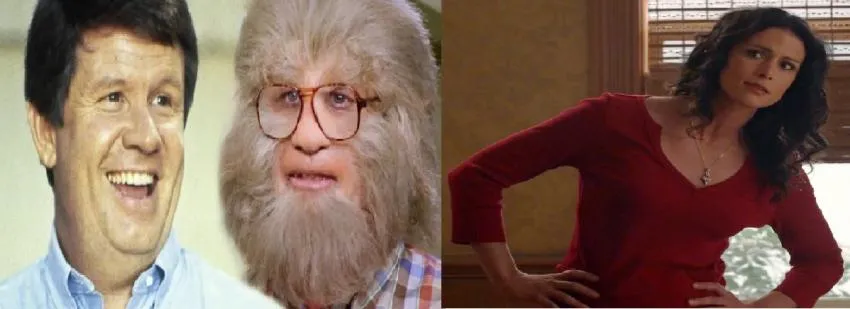
In both iterations of Teen Wolf Scott comes from a single-parent household, and in both versions, Scott’s parent is crushing it. In the film, Scott has his father Harold to rely on; Harold owns a hardware store and employs his son there, which has probably made Scott more responsible and allows him to earn money.
Harold is also supportive of Scott’s choices. When Scott mentions that he’s thinking of quitting basketball to do the school play, his father is behind him one hundred percent and doesn’t force him into anything or show disappointment-unlike other film dads, looking at you Coach Bolton from High School Musical. Shame!
Scott’s dad also tries his best to help his son adjust to his new werewolf persona, talking to him about responsibility (a la Uncle Ben in Spiderman) and confiding in Scott about his own experiences. Having said that, he is not too heavy-handed and allows Scott to figure things out for himself and make mistakes so he can learn from them.
Melissa McCall (Melissa Ponzio) has a bit more to deal with than Harold, considering she is not a werewolf and had no idea they-or any supernatural creatures-existed until she saw her son transform; nonetheless, she is an amazing mother.
Melissa doesn’t mince her words always talking straight with Scott and is respected by him for it. As well as being basically the only nurse available at any given time at Beacon Hills Hospital, she consistently puts her medical knowledge to good use to help Scott and his friends. Whenever Scott is panicking or lacking confidence it is his mum who knows just how to ground him and restore his faith in himself.
She is also very reasonable, allowing Scott’s father a chance to re-enter Scott’s life without letting her personal issues with him get in the way. Scott is always her number one priority, and she is constantly worried and proud of him in equal measures.
Better: No Love Triangles
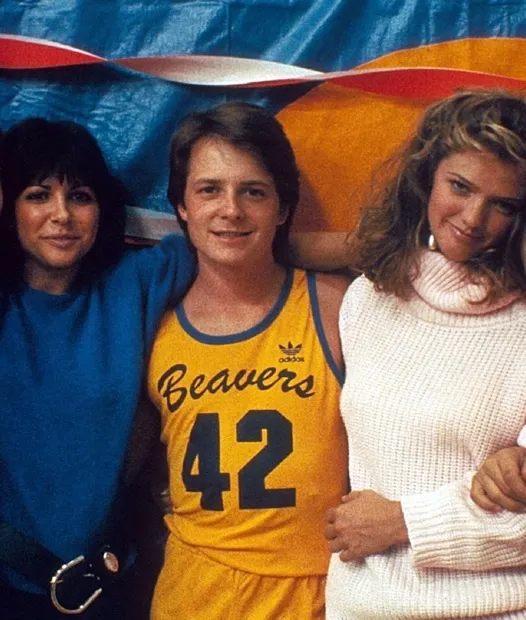
In Teen Wolf (1985) romance and unrequited love have a bigger role to play than in the 2011 series. Scott has a crush on the popular girl, Pamela (Lorie Griffin), and consequently is completely oblivious to the fact that his childhood friend Boof (Susan Ursitti) has a massive crush on him.
As a film full of cliches it would almost be strange for there not to be a love triangle doesn’t mean it’s something viewers want though. Scott continues to pursue Pamela even though she already has a boyfriend, I guess this is meant to portray him as a hopeless romantic but really it makes him seem like a bit of a douche.
Pamela only begins to show interest in him once it becomes known that he’s a werewolf, which not gonna lie is a bit weird, right? Meanwhile, Boof is thrown to the curb as Scott soaks up his newfound popularity.
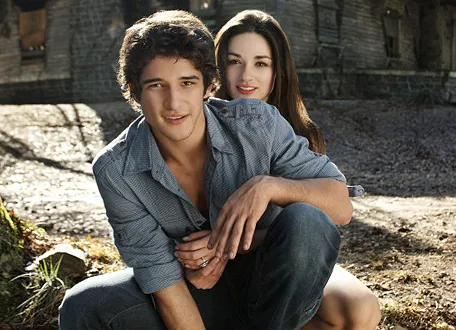
The Teen Wolf series handles its romantic subplots better, staying away from love triangles (though there were the occasional hints that one might form here and there it didn’t, phew). Of course, Scott becomes infatuated with Allison (Crystal Reed), but she is a much healthier choice than a shallow girl who’s already in a relationship (granted her family is werewolf hunters but that’s a minor detail). Scott’s hopeless romantic personality shines through better as he attempts to juggle schoolwork, lacrosse, and becoming a werewolf with his love life.
The series also shows some healthy, realistic breakups (as realistic as can be when werewolves exist) as previous relationships end and new ones begin, with Melissa McCall showing off her A+ parenting skills:
‘Sweetheart, let me tell you something no teenager ever believes, but I guarantee you is the absolute truth. You fall in love more than once. It will happen again. It will be just as amazing and extraordinary as the first time and maybe just as painful.’
And Scott does, after thinking he would never get over Allison, he meets Kira (Arden Cho), the series shows that one relationship isn’t the be-all and end-all. The series also showcases some LGBT+ relationships which are good to see.
Worse: No Michael J Fox
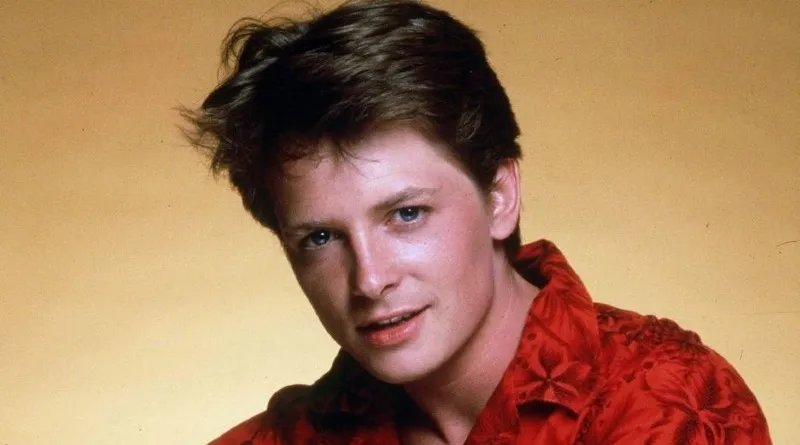
This probably shouldn’t count as it’s kind of a cheat but I’m putting it in any way. MTV’s Teen Wolf has a stellar cast, everyone is brilliant in their respective roles; however, it doesn’t have Michael J Fox. Few actors have the ability to bring immense likeability to any role they take on, but Michael J Fox is one of them.
If we’re really honest, Scott Howard is not always the most likable guy; he’s completely preoccupied with popularity, fame, and his crush, in short, he’s an arsehole for at least a third of the film. Yet, due to Fox’s earnestness and humble smile viewers are always rooting for Scott, willing him to succeed.
That is not to say that Tyler Posey doesn’t have similar qualities, because he does, and he brings them to the role of Scott McCall in buckets. Posey plays Scott honestly and with a lot of raw emotion, fully conveying the weight of the responsibility Scott feels as the series goes on.
Teen Wolf was Posey’s breakout role, unlike Fox who had been acting on Family Ties for years, and occasionally his inexperience creeps through.
The Same: The Humour
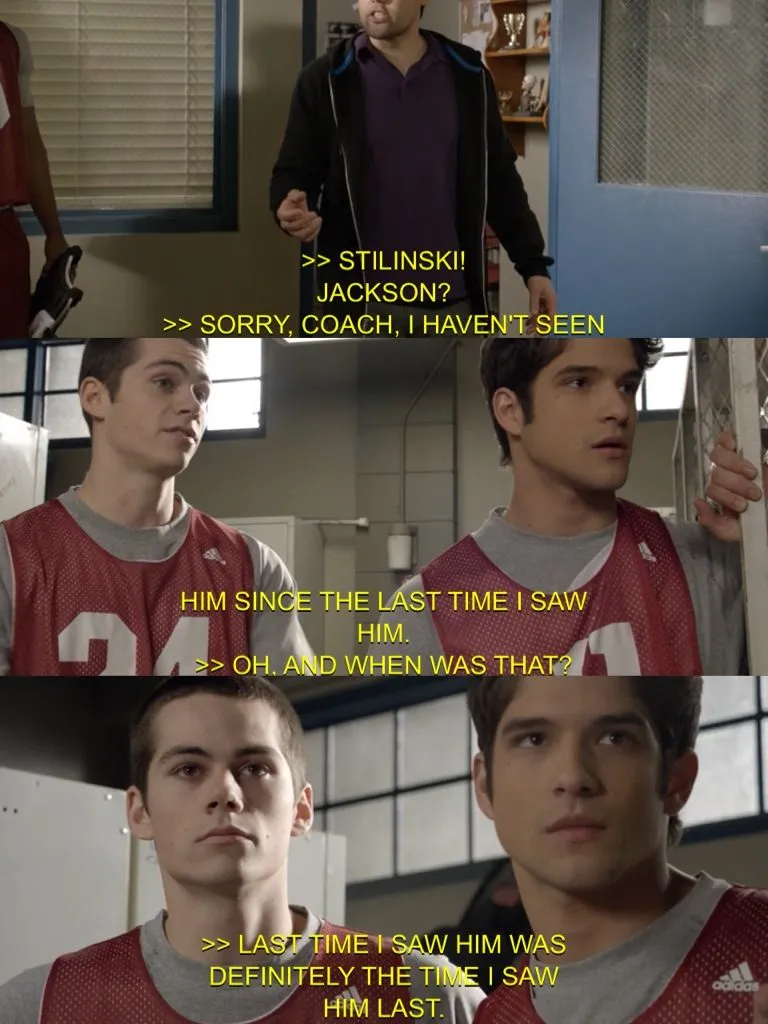
Although MTV’s Teen Wolf takes on a darker, grittier tone than the 1985 film, the humour is still there in spades. Jeff Davis manages to capture the same sarky, sarcastic humour that is present in the film and expand on it. While the film has some great comedic moments, such as Scott's father's werewolf reveal and a certain wet floor, it has to be admitted that the humour is erratic and the potential for more jokes and gags was there.
Davis takes the comedy and rolls with it, showcasing Scott and Stiles’ dorky personalities, and with consistent jokes throughout the more serious topics and themes the series delves into are offset, so the series never gets irredeemably dark. Therefore, while the humorous tone is the same in both versions you can look forward to a higher quantity of laughs in the series.
Better: Lacrosse Instead Of Basketball
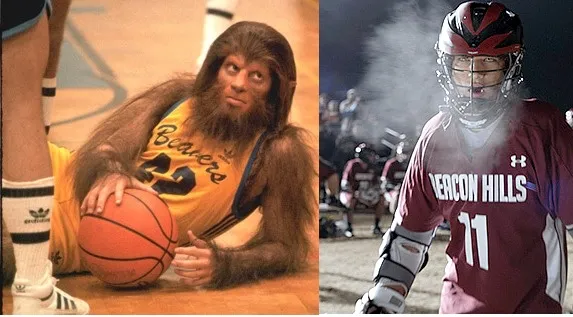
Basketball is Scott’s passion in the 1985 Teen Wolf and all he wants is for his sub-par team to win the upcoming tournament, or at least not be laughed off the court, and he gets his wish. With his blossoming werewolf abilities, Scott is able to singlehandedly get his team to the finals and give them a shot at winning the tournament.
The basketball play is cool to watch, and Fox’s basketball double Jeff Glosser from Marymount University makes some awesome shots, but there is a distinct lack of tension in the scenes, there is always the comfortable feeling that everything is going to be fine.
In the series, basketball is replaced with lacrosse, a more brutal contact sport where the risk of getting injured is higher. This increases the tension as it is much harder for Scott to control his wolf impulses in a game where you can be tackled and knocked to the ground.
The lacrosse team of Beacon Hills doesn’t need saving either, they’re already a skilled team who win the majority of their games. So, rather than being grateful that Scott’s athletic ability has suddenly increased ten-fold, some prima donnas on the team (looking at you Jackson) dislike Scott even more and are constantly at odds with him.
Thankfully, the thing that stays the same in both versions of Teen Wolf is the personality of Coach Bobby Finstock, played originally by Jay Tarses and resurrected by Orny Adams. He’s just as enthusiastic and just as good at giving convoluted advice containing bizarre metaphors.
Worse: Arbitrary Reasoning

While the writers did a great job with the Teen Wolf series, coming up with inventive storylines and moving arcs, some of the reasoning behind plot points and characters’ decisions doesn’t make a lot of sense or is completely glossed over.
For example, why is it that when bitten or deeply scratched by a werewolf you don’t always turn into a werewolf? For Jackson, it was said that his profound loneliness caused him to manifest as a Kanima, for Lydia it just awakened her latent Banshee abilities, and Kate becomes a werejaguar because…why does Kate become a werejaguar?
It’s cool to see different species of were-creatures but it’s a bit implausible (as much as can be in a teenage supernatural show) to suggest they all come from wolves, especially when they are part of different animal families-a Kanima is reptilian for god’s sake.
Even the wolves themselves aren’t consistent; some go for an American Werewolf in London look, while others become more demonic, Laura Hale completely transforms into what looks like an ordinary wolf, while some just grow a little extra facial hair. What’s with that? It’s never explained.
Teen Wolf 1985 has a much simpler premise than the series and there is less to keep track of, but one thing is clear, the werewolf transformation is caused by a gene that is passed down from one generation to the next.
The characters have simple motivations and the reasoning behind their actions all lead back to them: Scott wants Pamela, Boof wants Scott, and Stiles just wants to have a good time. This is all rounded up with the simple moral to just be comfortable with yourself and who you are, instead of changing for other people. Sorted.
The Same: Scott and Stiles’ Relationship
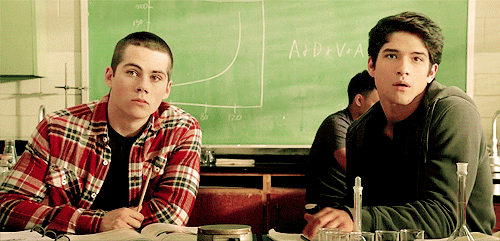
In both iterations of Teen Wolf, Scott’s best friend is Stiles Stilinski, a dorky, witty teen who is always himself and doesn’t care what anyone but those he cares about think of him. Stiles has an irreverent sense of humour that leads to him surfing on top of moving vans (1985) and hanging upside down from trees to talk about dead bodies (2011), and he always drags Scott along with him.
Stiles is always there for Scott and on both occasions is the first friend Scott tells about his werewolf affliction, although shocked he quickly accepts Scott for what he is supporting him when he needs it. The film shows that Stiles has a lot of potential as a character, but not all of it was explored.
The series capitalises on Stiles more, with Dylan O’Brien portraying him with skill and excellence and Jeff Davis' writing team giving him more layers than are shown in 1985 original, especially as seasons progress.
Behind Stiles’ wit and humour is a teen who has gone through more than his fair share of trauma (and that’s before he even knows about werewolves), but Stiles disguises it with a clumsy smile and puts others' needs before his own. Scott and Stiles’ brotherly bond is obvious from the get-go in both versions, the series just cements it in place.
Better: Expansion Of The World

1985’s Teen Wolf solely focuses on telling a coming-of-age tale that happens to involve werewolves, there is never mention of any other supernatural or paranormal creatures existing, and as such it’s a very insular story leaving a lot of questions viewers may have about the world Scott lives in unanswered.
The Teen Wolf series answers some of these queries; while the series’ main focus, especially for the first couple of seasons is centred around werewolves, the world gradually expands as more supernatural creatures make their existence known.
Viewers are introduced to Kanima, Banshees, Kitsunes, and more, learning about legends and folklore along the way and giving the Teen Wolf universe more scope and potential. Not limiting the supernatural element to werewolves alone gave the writers more freedom to go hell-for-leather, and they definitely did just that.
Each rendition of Teen Wolf has its merits and downsides. They are both of their time, and like the 80s film, the series will become nostalgic in time-for some it may have already got there. Without the film, the series wouldn’t have been created. They exist as prime examples of how the same premise can be taken in completely different directions by creative people and be successful either way. Teen Wolf will always be great, no matter which one you watch.
MTV's Teen Wolf series (2011)
Teen Wolf 1985 film
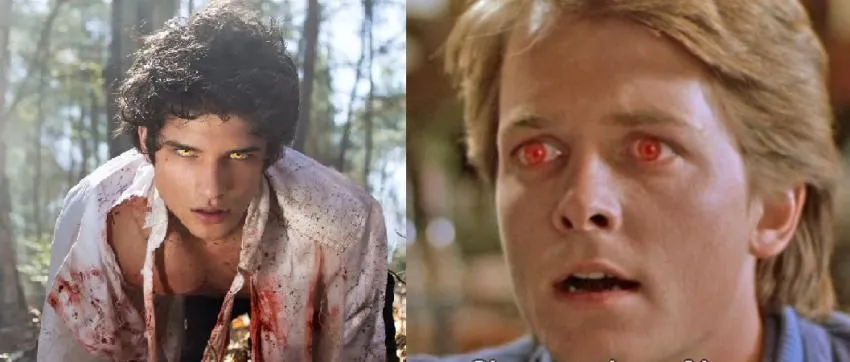
Opinions and Perspectives
I appreciate how both versions tackled teenage issues while keeping things entertaining.
The way the series built up its world over multiple seasons was really impressive.
Watching these back to back really shows how differently you can tell the same basic story.
The series raised the stakes but never lost that core message about accepting yourself.
The original movie had better pacing but the series had better character arcs.
Both versions captured that feeling of being an outsider in high school perfectly.
The series definitely took more risks which I appreciated, even if they didn't all pay off.
I loved watching Scott try to balance normal teenage life with being a werewolf in both versions.
Can we talk about how great the music was in both versions? Really set the tone perfectly.
The show's mythology got a bit convoluted but I still enjoyed trying to piece it all together.
Both versions did a great job showing how hard it is to keep secrets in high school.
The series definitely had better female characters. They weren't just love interests.
I think people forget how groundbreaking the original movie was for its time.
The series really nailed the friendship dynamics. Felt very real despite all the supernatural stuff.
Melissa McCall deserved more recognition. She handled everything like a champ.
I was skeptical about a Teen Wolf series but they really made it their own thing.
Coach Finstock was hilarious in both versions. Some of the best one-liners in either version.
I think both versions succeed at what they were trying to do. The movie as a fun teen comedy and the show as a supernatural drama.
The lacrosse scenes were way more intense than the basketball games. You really felt the danger.
Jeff Davis really understood what made the original work and built on it brilliantly.
Both versions captured that feeling of dealing with change during high school really well.
The arbitrary reasoning for different transformations doesn't bother me. It's a show about teenage werewolves, I'm not expecting perfect logic.
I loved how the show balanced horror and humor. Those moments of levity made the scary parts hit harder.
The series did a much better job developing the side characters. Everyone felt important to the story.
Totally agree about Michael J Fox being irreplaceable. He just has that special something.
The original movie nailed the coming of age story better in my opinion. Sometimes less is more.
I actually liked that they kept some mystery around the transformations in the series. Made it feel more supernatural.
The series definitely improved on the werewolf design. Sorry but the original looked more like Teen Bigfoot than Teen Wolf.
Props to both versions for showing supportive single parents. That's not something we see enough of.
I kind of miss the simplicity of the original where being a werewolf was just a metaphor for puberty and finding yourself.
The way they handled LGBT relationships in the series was really progressive for its time.
Anyone else feel like they never properly explained why some people turned into different creatures? That always bugged me.
Dylan O'Brien absolutely killed it as Stiles. He took what could have been just comic relief and made it into something special.
I actually preferred the more serious tone of the series. It made the stakes feel higher.
The series definitely had better production value, but there's something charming about those 80s practical effects in the movie.
Tyler Posey brought something different but equally compelling to the role. His Scott felt more grounded and relatable to me.
I miss when supernatural shows could just be fun without trying to build these huge complicated universes.
The original film's simple premise worked perfectly for what it was trying to do. Not everything needs complex mythology.
I totally agree about Scott and Stiles' friendship being a highlight in both versions. Their chemistry really sells it.
Anyone else think the Kanima storyline was way too confusing? The whole 'different reactions to the bite' thing felt like they were making it up as they went along.
Melissa McCall was such an amazing mom character. The way she handled everything thrown at her was inspiring.
I actually liked that they dropped the love triangle aspect in the series. Those can get so tiresome and predictable.
The withholding information thing drove me crazy! I mean come on Derek, just tell Scott what he needs to know already!
One thing I really appreciated about the series was how they expanded the supernatural world. The different types of creatures kept things fresh and interesting.
You make a good point about the humor staying consistent in both versions. I cracked up every time Coach Finstock went on one of his random tangents in the show.
I have to disagree about the lacrosse being better than basketball. The basketball scenes in the original had this fun lighthearted energy that really worked with the tone.
The original movie will always hold a special place in my heart. Michael J Fox brought so much charm to the role that's hard to replicate.
I absolutely loved the transformation effects in the MTV series. The glowing eyes were such a great touch and made it feel more supernatural than the 1985 film version.
